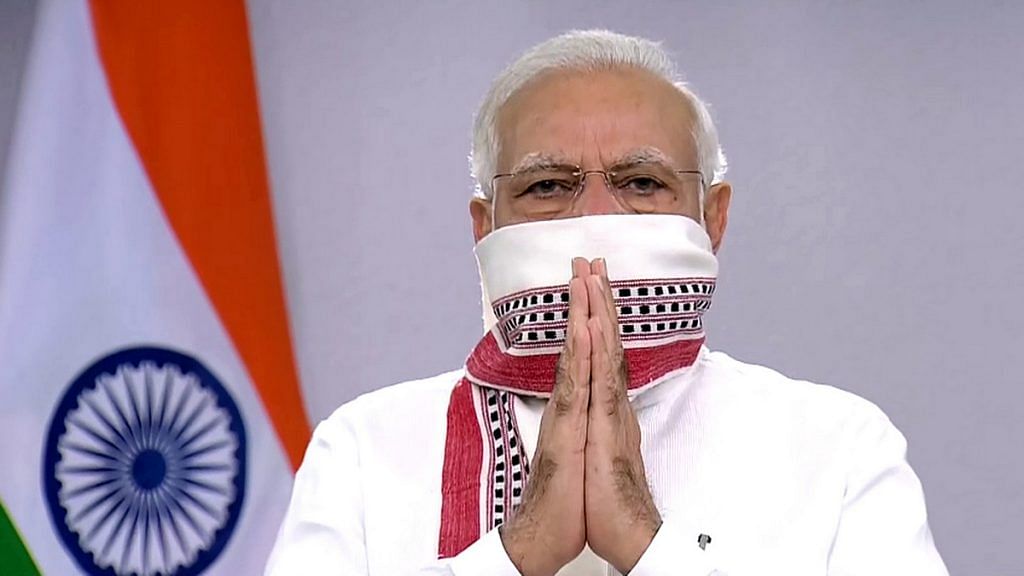Two migrants, both hundreds of kilometres away from their respective families: one in search of livelihood, other in pursuit of quality education for a better future. After the outbreak of the Covid-19 pandemic, both wanted to return home to the safety of their homes. And, there end all similarities.
One is a daughter of a BJP MLA in Bihar, who was studying in Kota, Rajasthan. She returned safely after her influential father got special permission from the authorities to travel to Kota and bring her back. The MLA, who breached the lockdown norms went unpunished. Bihar chief minister Nitish Kumar, often applauded for his so-called good governance, is maintaining a sullen silence.
The other migrant was a child–a 12-year-old girl. The only earning member in her poor family. Her attempt to walk a 100-odd km to her home in Chhattisgarh ended in her death, 11 km short of her home.
One thing that this pandemic has shown is that the “mai-baap sarkaar” culture is persisting, in fact thriving, even in 21st century India.
Also read: Bihar CM Nitish Kumar in a fix after Adityanath’s move to bring back students from Kota
Where is the rule of law?
There have been numerous incidents of the rich and influential blatantly violating the lockdown either directly or by forcing the corrupt government officials.
But, these stories are nowhere near the number of gut-wrenching reports of human misery coming in from the same regions, especially from states where the poorest of the poor live.
And this is the reason India, with its poor planning and inefficient state response to various challenges, particularly economic ones, should ask itself: where is the rule of law promised in our Constitution by the great men and women who wrote that wonderful book?
Also read: UP’s decision to evacuate students from Kota irks Bihar while MP, Chhattisgarh follow suit
Police brutality
Who, if anyone, will take on police officials whose actions resulted in the deaths of poor people after being brutally thrashed for breaking the lockdown? Examples of such police high-handedness abound.
Rule of law ordinarily means similar treatment, irrespective of religion, caste, age, gender, colour etc, for similar crimes or circumstances for all citizens.
The sub-divisional magistrate who issued the pass to the BJP MLA in Bihar or Maharashtra’s principal secretary (Home) Amitabh Gupta, who issued a letter to facilitate the illegal travel of HDFL promoters Kapil Wadhawan and Dheeraj Wadhawan from Khandala to Mahabaleshwar , will at most get away with a rap on the knuckles. But, hundreds of poor people will face legal action launched by a vengeful state to browbeat them into staying at their current locations.
So what if many of these people have run out of money and food and are finding it difficult to survive the lockdown away from their native places with no source of income?
If you have the means and know which doors to knock on, help, even if arbitrary, will certainly come your way.
As for the poor, they will be left to fend for themselves. Their cases, most of them filed on specious grounds, will not allow them to attempt a return to normal life even after the crisis is over.
Hundreds of cases, if not more, registered by police in several states under Section 188 of the Indian Penal Code, which deals with disobedience of lawful orders issued by a public servant, will only add to the misery of the citizens.
That several of those against whom the cases have been filed, including for posting objectionable material, are critics of the party in power only adds to the gravity of the problem.
Also read: ‘I miss him so much’: The collateral damage of farmer suicides in Vidarbha
Hope in judiciary
There is hope, very bleak though, considering the pro-government tilt that has come to define the actions of some of our higher judiciary members in recent times that a Constitutional court will ask the important question: Under what law did the police assume the power to book people and arrest them?
Hopefully, some court will come down on the police for what is clearly an overreach in arresting people for breaking the lockdown.
Another important concern is the possibility of these accused, many of whom have been arrested, contacting the virus in jail.
The Supreme Court, in a suo motu proceeding, ordered release of undertrials to reduce overcrowding in jails in the wake of Covid-19 outbreak. But, while many of these prisoners haven’t been released since district courts are practically shut, the police are busy picking up people for offences as stupid as stepping out of home for morning walks.
These cases will survive the lockdown, adding to the already long and unwieldy load of cases pending in different courts.
Where is the sanctity of the lockdown?
It is not just the influential people who are using their clout to breach the stringent guidelines governing the lockdown. There have been some instances where even state governments have themselves been in breach of the rules.
While poor migrants travelling hundreds of kilometres to return home are lathicharged or even booked, nobody questions when Uttar Pradesh government decides to send 250 buses to Kota to bring back students from the state stranded there.
Doesn’t this prove that even the governments know that the lockdown and its guidelines are not etched in stone?
So why are common citizens being penalised for doing something that several state governments have themselves done?
The scales of justice are clearly being shifted towards the state here. And, that is never a good idea, especially in a democratic setup like ours.
The author is a senior journalist. Views are personal.
